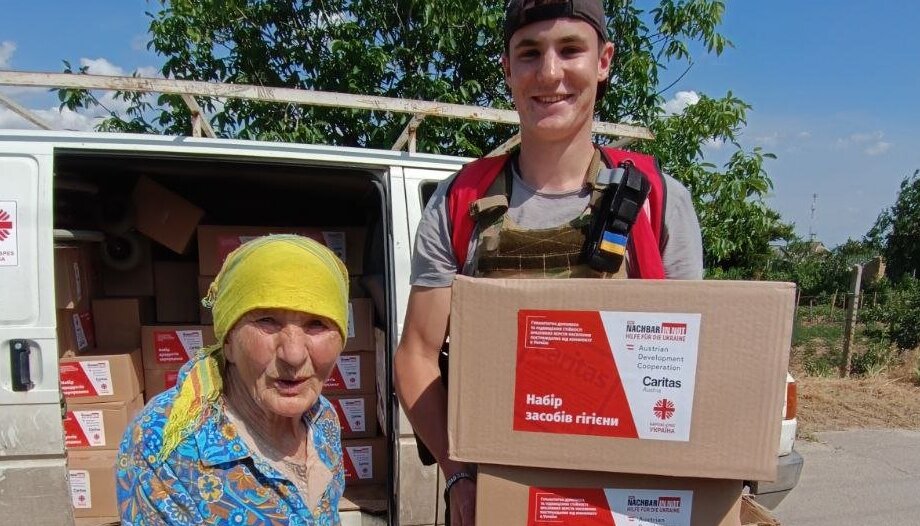With support from small volunteer groups to some of the world's largest charities, and with the inspiration of the Catholic faith, Caritas Internationalis (CI) is the Church's helping hand reaching out to the poor, the vulnerable and the excluded, regardless of race or religion, to build a world based on justice and fraternal love. Headquartered in Rome, it coordinates emergency operations, formulates development policies and promotes a better world for all.
From the founding of the first Caritas in Germany in 1897, to the creation of CI in 1951, to the present day, Caritas has a rich history of respectfully listening to the suffering of the poor and providing them with the tools to transform their lives.
The deep moral and spiritual principles of dignity, justice, solidarity and stewardship continue to guide Caritas today.
Marta Petrosillo, CI's Director of Fundraising, Public Relations and Communications, spoke on June 27th at the meeting organized by the Iscom Association at the Pontifical University of the Holy Crosswith the participation of some communication directors of Catholic institutions.
"We build global solidarity: we speak as one Caritas family and are recognized as a credible and trusted global voice on social, ecological, humanitarian and development issues. We bear witness to the lived experience of people living in poverty, who are excluded, vulnerable or in crisis, uniting with their demands for justice through our communications. We strengthen communication skills at all levels of the Confederation through mutual learning and accompaniment. In the spirit of solidarity and fraternal cooperation, we mobilize resources to achieve our collective mission".
In the framework outlined by Petrosillo, a few elements play a key role in CI's communication strategy: first, constant cooperation and coordination with emergency response colleagues; the presence of the communication focal point in the support team (e.g., communication focal points in Ukraine and neighboring countries); constant updates, testimonials, stories, interviews; organization of conferences and briefings for the media and other interested parties, videos and photos.
Our commitment - emphasizes Petrosillo - is also to bear witness to the so-called forgotten crises, giving a voice to those who have none. The crisis in the Democratic Republic of Congo, the crisis in South Sudan. Two countries that have experienced a serious humanitarian crisis for more than twenty years, forgotten by the media, but which continue to engage Caritas and the local churches, which have never ceased to provide aid and alleviate the suffering of populations in difficulty".
On January 27, the heads of Caritas Congo, Boniface Ata Deagbo, and Caritas South Sudan, Gabriel Yai Aropo, met at a virtual meeting point with the Confederation of Catholic Relief, Development and Social Service Organizations operating in more than 200 countries and territories around the world.
How does CI's work materialize concretely? "We seek to counteract - answers Petrosillo - poverty and, above all, the serious food insecurity that continues to worsen, also as a consequence of the Ukrainian crisis which, at the international level, has had a major impact on food insecurity, especially in recent months.
Another front on which Caritas is strongly committed is the reception and support of refugees. We have more than 5 million internally displaced people in the country due to conflicts, mainly coming from the eastern part of the DRC. The presence of child soldiers has been highlighted among them. Caritas seeks to provide them with shelter, food and basic necessities. There is also a strong commitment to the education of the youngest.
Caritas South Sudan, on the other hand, brings together members of different communities, different ethnic groups, and engages them in joint activities to promote peace."
From the point of view of communication, one cannot fail to take advantage of the opportunities offered by a papal trip and the imperative of promptness cannot be avoided.
Beyond the apostolic journey of the Pope Francis to the Democratic Republic of the Congo and South Sudan (January 31 - February 5), the CI Communications Officer mentions the visit of the Holy Father to Kazakhstan last September.
On the eve of this, Guido Trezzani, Caritas country director, in an online meeting for journalists organized by CI, said, "Caritas activity is a powerful tool to get out of that small enclosure in which we remain locked and respond to the needs of the people," because despite the fact that Kazakhstan is a country potentially rich in resources, "the reality of the people, especially the population living in rural areas, outside the big cities, is difficult". Caritas is engaged in various fields of action: education, health, assistance to the most vulnerable sectors of the population such as the elderly and people with disabilities.
Since 2014, Caritas has initiated a "pilot" project to support families with children with Down syndrome. In order to meet the needs of these parents, Caritas opened a Center in Almaty with a branch in the Caspian area and three other points are being opened. "There is a demand," Father Trezzani said, "and a total lack of specialists."
The work of Caritas seeks not only to help families by promoting school integration and job placement, but also to carry out awareness-raising initiatives, starting in clinics where abortion or abandonment in orphanages is often proposed to families because the condition of the syndrome is presented as a "hopeless situation".









